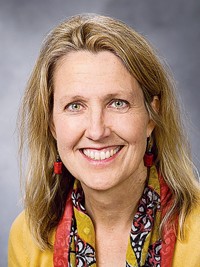Advertisement
Grab your lab coat. Let's get started
Welcome!
Welcome!
Create an account below to get 6 C&EN articles per month, receive newsletters and more - all free.
It seems this is your first time logging in online. Please enter the following information to continue.
As an ACS member you automatically get access to this site. All we need is few more details to create your reading experience.
Not you? Sign in with a different account.
Not you? Sign in with a different account.
ERROR 1
ERROR 1
ERROR 2
ERROR 2
ERROR 2
ERROR 2
ERROR 2
Password and Confirm password must match.
If you have an ACS member number, please enter it here so we can link this account to your membership. (optional)
ERROR 2
ACS values your privacy. By submitting your information, you are gaining access to C&EN and subscribing to our weekly newsletter. We use the information you provide to make your reading experience better, and we will never sell your data to third party members.
Careers
Promoting Diversity
by Rudy M. Baum
November 22, 2004
| A version of this story appeared in
Volume 82, Issue 47
In two recent editorials, I've focused on the increasingly multidisciplinary nature of scientific research and the effect of that trend on chemistry. I have noted that the ACS Strategic Plan for 2004–06 explicitly addresses this issue.
Another issue confronting the chemical enterprise that is addressed by the ACS Strategic Plan is the need to promote inclusiveness in our profession. The plan states that ACS "will advance inclusiveness and diversity in the profession of chemistry and within the Society such that the membership and leadership demographics of ACS more closely parallel that of society in general."
Many elements of ACS are engaged in addressing this challenging objective. One is the ACS Committee on Professional Training (CPT), which recently held the first in a series of workshops on strategies for increasing both participation of underrepresented minority undergraduate students in chemistry and the number of ACS-approved undergraduate programs at minority-serving institutions. The workshop was organized by University of Arizona chemistry professor Jeanne E. Pemberton, a former chair of CPT and currently a consultant to the committee.
CPT identified a number of historically black colleges and universities (HBCUs) and several institutions that serve a large African American undergraduate population for participation in the workshop. Among them were Alcorn State University, Chicago State University, Claflin University, Clark-Atlanta University, Fisk University, Florida A&M University, Hampton University, Howard University, Jackson State University, Morehouse College, Morgan State University, Norfolk State University, North Carolina Central University, Prairie View A&M University, Savannah State University, Southern University and A&M College, Spelman College, Texas Southern University, and Tuskegee University.
Representatives of these colleges and universities, members of CPT and other units of ACS governance, representatives from other interested institutions, and ACS staff met over a weekend at the ACS headquarters. In her introductory comments, Pemberton outlined the goals of the workshop:
◾ To discuss challenges associated with the recruitment and retention of African American undergraduate students in chemistry and what ACS in general, and CPT specifically, might do to improve the profession's performance in this area.
◾ To better educate CPT about the current state of chemistry departments at institutions with large African American undergraduate student populations.
◾ To devise a strategy for identifying and disseminating practices that work in developing strong chemistry programs that educate significant numbers of African American students.
Joseph Francisco, a chemistry professor at Purdue University and a member of CPT who was also involved in organizing the workshop, outlined the scope of the problem. At the 50 top research universities, only 18 of 1,638 chemistry faculty are African American. Of those 18, only 13 are native born. Francisco also made clear in his presentation that HBCUs are doing something right when it comes to developing African American chemists. Over the past five years at Purdue, three African American graduate students came from major research universities, while 29 came from HBCUs. The same is true at most of the other top chemistry Ph.D.-producing universities, Francisco said.
CPT Chair F. Fleming Crim, a chemistry professor at the University of Wisconsin, Madison, says the workshop was successful on a number of levels. CPT is responsible for evaluating university undergraduate chemistry degree programs and for granting ACS approval to programs that meet the committee's rigorous standards. Crim says the workshop helped educate CPT on the challenges HBCUs and other minority-serving institutions face in receiving ACS approval for their programs. The workshop also helped make clear the value of ACS approval of a chemistry program at a minority-serving institution.
On the larger issue of how to mount more effective chemistry programs at HBCUs and other minority-serving institutions and to attract more African American students to study chemistry, the workshop is but a single step in a challenging process. ACS and the National Organization for the Professional Advancement of Black Chemists & Chemical Engineers are forging a close working relationship to meet this challenge.
Thanks for reading.







Join the conversation
Contact the reporter
Submit a Letter to the Editor for publication
Engage with us on Twitter